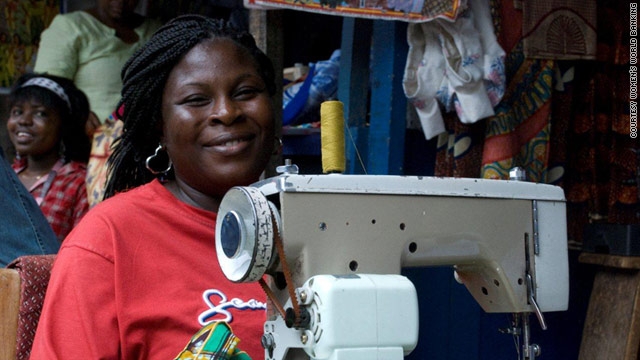
Some 70 microfinance and money lending companies have seen their licenses revoked by the central bank- Bank of Ghana. The expiration of provisional license given to these MFIs and money lending companies was the reason for the revoking of these licenses. The BoG explained in a statement. The operators wanting to start Banking Business or MFIs are given provisional license, to begin the processing of starting full operations. They are however given up to six months to meet all requirements before they start business. So ABC Microfinance Limited will acquire license from BoG to operate but it should meet all necessary requirements by the sixth month of issuance of license before they open their doors to the public for business. In essence the Central Bank is saying all these 70 MFIs and money lending companies have failed to meet the requirements to be given the green light to start business with the public.
There’s been some hue and cry as to how these MFIs are regulated. Just last year the MFI sector saw some bad press with the handling of the DKM Diamond Microfinance Limited brouhaha with their clients. Clients of DKM Diamond Microfinance Limited in Sunyani were made to wait for their returns on matured investments as BoG audited the accounts of the MFI. Tensions brewed as the Central Bank suspended the operations of DKM Diamond Microfinance Limited.
Also, there have been instances were some crooks posing as operators of MFIs and money lending companies bolted with funds of clients. How do credible and licensed MFIs surmount these hurdles in 2016 forward?
Yaw Korankye Antwi heads the Risk Management Department at First Allied Savings and Loan Company Limited. He sheds some light on some strategies MFIs can adopt to spur growth in 2016 and beyond.
2015 was particularly a tough one for the MFI industry looking at business sustainability for which several of them collapsed and others were involved in some tango with their clients and the regulator- The Central Bank. But Yaw Korankye Antwi believes part of the difficulties have emanated from the economic squeeze we have seen in recent times. Firstly, the main “stock” being cash (or deposits) has been more expensive with the base interest rate rising with the speed of light. He adds that, once government offer such high interest rates on treasury investments, it pushes the whole bottom up for every financial institution and with MFI being the riskiest, they are forced to offer higher rates of returns on patrons’ investments. And even some offer as high as between 45-50 percent which is ridiculously high, he contends.
Secondly, he states, most of their (MFIs) loan customers are at the small and micro sectors who are plagued with already high cost of doing business since they are not enjoying the benefits of economies of scale due mainly to the size of their businesses. The cost of funds to their businesses makes their loan repayment interest rate as high as 60-80%. These businesses are able to pay the 1st or even 2nd loans but slide into default subsequently because the capital of the business must have been chewed by these loan interest payments. Also, borrowers now default and obviously go away with the loan. The MFIs are now left to deal with its impaired assets with no help from anybody. Eventually, when the heat is too much, they just shut down and disappear.
Thirdly, MFIs generally have weak systems to manage funds and also manage their loan portfolios. Their fund management activities mostly fall below prudent risk management practices. Funds get locked up or are mismatched due to weaknesses in planning. I think they sometimes lose sight of the fact that the terrain is quiet slippery and that they need to discipline themselves to stay within limits.
Moving forward, Yaw Korankye Antwi advises MFIs to slow down on any intended business expansion drive and rather look to solidify what they have. In this case they would need to concentrate on the few good ones and keep lending to them. Also, the investments they undertake with peoples’ fund should balance returns with liquidity of investments. Additionally, they should look to build their internal systems and management while things are on the conservative state. Lean management (not cost cutting) should be well applied. In this case they build up good systems to reap when the good times show up. The very ultimate is risk management systems.
2016 is likely to somewhat be like (or even worse) that 2015 looking at how it has begun but it is a bit like going on the 1st gear so you can climb a steep hill. 1st gear is slower, takes more energy, is more grinding but surmounts the odds. For MFIs (and may be other business), it will be a bit like keeping your head above water and knowing that conservatism is the prime virtue for this time. The 1st gear is slower but does not stop so MFIs should just keep going.
Credit: Ghana Talks Business









